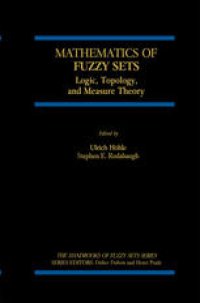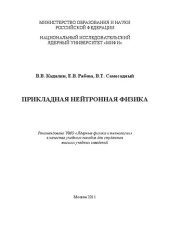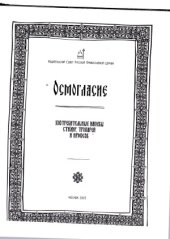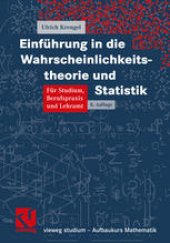
Ebook: Mathematics of Fuzzy Sets: Logic, Topology, and Measure Theory
- Tags: Mathematical Logic and Foundations, Calculus of Variations and Optimal Control, Optimization, Operation Research/Decision Theory
- Series: The Handbooks of Fuzzy Sets Series 3
- Year: 1999
- Publisher: Springer US
- Edition: 1
- Language: English
- pdf
Mathematics of Fuzzy Sets: Logic, Topology and Measure Theory is a major attempt to provide much-needed coherence for the mathematics of fuzzy sets. Much of this book is new material required to standardize this mathematics, making this volume a reference tool with broad appeal as well as a platform for future research. Fourteen chapters are organized into three parts: mathematical logic and foundations (Chapters 1-2), general topology (Chapters 3-10), and measure and probability theory (Chapters 11-14).
Chapter 1 deals with non-classical logics and their syntactic and semantic foundations. Chapter 2 details the lattice-theoretic foundations of image and preimage powerset operators. Chapters 3 and 4 lay down the axiomatic and categorical foundations of general topology using lattice-valued mappings as a fundamental tool. Chapter 3 focuses on the fixed-basis case, including a convergence theory demonstrating the utility of the underlying axioms. Chapter 4 focuses on the more general variable-basis case, providing a categorical unification of locales, fixed-basis topological spaces, and variable-basis compactifications.
Chapter 5 relates lattice-valued topologies to probabilistic topological spaces and fuzzy neighborhood spaces. Chapter 6 investigates the important role of separation axioms in lattice-valued topology from the perspective of space embedding and mapping extension problems, while Chapter 7 examines separation axioms from the perspective of Stone-Cech-compactification and Stone-representation theorems. Chapters 8 and 9 introduce the most important concepts and properties of uniformities, including the covering and entourage approaches and the basic theory of precompact or complete [0,1]-valued uniform spaces. Chapter 10 sets out the algebraic, topological, and uniform structures of the fundamentally important fuzzy real line and fuzzy unit interval.
Chapter 11 lays the foundations of generalized measure theory and representation by Markov kernels. Chapter 12 develops the important theory of conditioning operators with applications to measure-free conditioning. Chapter 13 presents elements of pseudo-analysis with applications to the Hamilton&endash;Jacobi equation and optimization problems. Chapter 14 surveys briefly the fundamentals of fuzzy random variables which are [0,1]-valued interpretations of random sets.
Mathematics of Fuzzy Sets: Logic, Topology and Measure Theory is a major attempt to provide much-needed coherence for the mathematics of fuzzy sets. Much of this book is new material required to standardize this mathematics, making this volume a reference tool with broad appeal as well as a platform for future research. Fourteen chapters are organized into three parts: mathematical logic and foundations (Chapters 1-2), general topology (Chapters 3-10), and measure and probability theory (Chapters 11-14).
Chapter 1 deals with non-classical logics and their syntactic and semantic foundations. Chapter 2 details the lattice-theoretic foundations of image and preimage powerset operators. Chapters 3 and 4 lay down the axiomatic and categorical foundations of general topology using lattice-valued mappings as a fundamental tool. Chapter 3 focuses on the fixed-basis case, including a convergence theory demonstrating the utility of the underlying axioms. Chapter 4 focuses on the more general variable-basis case, providing a categorical unification of locales, fixed-basis topological spaces, and variable-basis compactifications.
Chapter 5 relates lattice-valued topologies to probabilistic topological spaces and fuzzy neighborhood spaces. Chapter 6 investigates the important role of separation axioms in lattice-valued topology from the perspective of space embedding and mapping extension problems, while Chapter 7 examines separation axioms from the perspective of Stone-Cech-compactification and Stone-representation theorems. Chapters 8 and 9 introduce the most important concepts and properties of uniformities, including the covering and entourage approaches and the basic theory of precompact or complete [0,1]-valued uniform spaces. Chapter 10 sets out the algebraic, topological, and uniform structures of the fundamentally important fuzzy real line and fuzzy unit interval.
Chapter 11 lays the foundations of generalized measure theory and representation by Markov kernels. Chapter 12 develops the important theory of conditioning operators with applications to measure-free conditioning. Chapter 13 presents elements of pseudo-analysis with applications to the Hamilton&endash;Jacobi equation and optimization problems. Chapter 14 surveys briefly the fundamentals of fuzzy random variables which are [0,1]-valued interpretations of random sets.
Mathematics of Fuzzy Sets: Logic, Topology and Measure Theory is a major attempt to provide much-needed coherence for the mathematics of fuzzy sets. Much of this book is new material required to standardize this mathematics, making this volume a reference tool with broad appeal as well as a platform for future research. Fourteen chapters are organized into three parts: mathematical logic and foundations (Chapters 1-2), general topology (Chapters 3-10), and measure and probability theory (Chapters 11-14).
Chapter 1 deals with non-classical logics and their syntactic and semantic foundations. Chapter 2 details the lattice-theoretic foundations of image and preimage powerset operators. Chapters 3 and 4 lay down the axiomatic and categorical foundations of general topology using lattice-valued mappings as a fundamental tool. Chapter 3 focuses on the fixed-basis case, including a convergence theory demonstrating the utility of the underlying axioms. Chapter 4 focuses on the more general variable-basis case, providing a categorical unification of locales, fixed-basis topological spaces, and variable-basis compactifications.
Chapter 5 relates lattice-valued topologies to probabilistic topological spaces and fuzzy neighborhood spaces. Chapter 6 investigates the important role of separation axioms in lattice-valued topology from the perspective of space embedding and mapping extension problems, while Chapter 7 examines separation axioms from the perspective of Stone-Cech-compactification and Stone-representation theorems. Chapters 8 and 9 introduce the most important concepts and properties of uniformities, including the covering and entourage approaches and the basic theory of precompact or complete [0,1]-valued uniform spaces. Chapter 10 sets out the algebraic, topological, and uniform structures of the fundamentally important fuzzy real line and fuzzy unit interval.
Chapter 11 lays the foundations of generalized measure theory and representation by Markov kernels. Chapter 12 develops the important theory of conditioning operators with applications to measure-free conditioning. Chapter 13 presents elements of pseudo-analysis with applications to the Hamilton&endash;Jacobi equation and optimization problems. Chapter 14 surveys briefly the fundamentals of fuzzy random variables which are [0,1]-valued interpretations of random sets.
Content:
Front Matter....Pages i-xii
Introduction....Pages 1-3
Many-Valued Logic And Fuzzy Set Theory....Pages 5-89
Powerset Operator Foundations For Poslat Fuzzy Set Theories And Topologies....Pages 91-116
Introductory Notes To Chapter 3....Pages 117-122
Axiomatic Foundations Of Fixed-Basis Fuzzy Topology....Pages 123-272
Categorical Foundations of Variable-Basis Fuzzy Topology....Pages 273-388
Characterization Of L-Topologies By L-Valued Neighborhoods....Pages 389-432
Separation Axioms: Extension of Mappings And Embedding of Spaces....Pages 433-479
Separation Axioms: Representation Theorems, Compactness, and Compactifications....Pages 481-552
Uniform Spaces....Pages 553-580
Extensions Of Uniform Space Notions....Pages 581-606
Fuzzy Real Lines And Dual Real Lines As Poslat Topological, Uniform, And Metric Ordered Semirings With Unity....Pages 607-631
Fundamentals of a Generalized Measure Theory....Pages 633-651
On Conditioning Operators....Pages 653-673
Applications Of Decomposable Measures....Pages 675-700
Fuzzy Random Variables Revisited....Pages 701-710
Back Matter....Pages 711-716
Mathematics of Fuzzy Sets: Logic, Topology and Measure Theory is a major attempt to provide much-needed coherence for the mathematics of fuzzy sets. Much of this book is new material required to standardize this mathematics, making this volume a reference tool with broad appeal as well as a platform for future research. Fourteen chapters are organized into three parts: mathematical logic and foundations (Chapters 1-2), general topology (Chapters 3-10), and measure and probability theory (Chapters 11-14).
Chapter 1 deals with non-classical logics and their syntactic and semantic foundations. Chapter 2 details the lattice-theoretic foundations of image and preimage powerset operators. Chapters 3 and 4 lay down the axiomatic and categorical foundations of general topology using lattice-valued mappings as a fundamental tool. Chapter 3 focuses on the fixed-basis case, including a convergence theory demonstrating the utility of the underlying axioms. Chapter 4 focuses on the more general variable-basis case, providing a categorical unification of locales, fixed-basis topological spaces, and variable-basis compactifications.
Chapter 5 relates lattice-valued topologies to probabilistic topological spaces and fuzzy neighborhood spaces. Chapter 6 investigates the important role of separation axioms in lattice-valued topology from the perspective of space embedding and mapping extension problems, while Chapter 7 examines separation axioms from the perspective of Stone-Cech-compactification and Stone-representation theorems. Chapters 8 and 9 introduce the most important concepts and properties of uniformities, including the covering and entourage approaches and the basic theory of precompact or complete [0,1]-valued uniform spaces. Chapter 10 sets out the algebraic, topological, and uniform structures of the fundamentally important fuzzy real line and fuzzy unit interval.
Chapter 11 lays the foundations of generalized measure theory and representation by Markov kernels. Chapter 12 develops the important theory of conditioning operators with applications to measure-free conditioning. Chapter 13 presents elements of pseudo-analysis with applications to the Hamilton&endash;Jacobi equation and optimization problems. Chapter 14 surveys briefly the fundamentals of fuzzy random variables which are [0,1]-valued interpretations of random sets.
Content:
Front Matter....Pages i-xii
Introduction....Pages 1-3
Many-Valued Logic And Fuzzy Set Theory....Pages 5-89
Powerset Operator Foundations For Poslat Fuzzy Set Theories And Topologies....Pages 91-116
Introductory Notes To Chapter 3....Pages 117-122
Axiomatic Foundations Of Fixed-Basis Fuzzy Topology....Pages 123-272
Categorical Foundations of Variable-Basis Fuzzy Topology....Pages 273-388
Characterization Of L-Topologies By L-Valued Neighborhoods....Pages 389-432
Separation Axioms: Extension of Mappings And Embedding of Spaces....Pages 433-479
Separation Axioms: Representation Theorems, Compactness, and Compactifications....Pages 481-552
Uniform Spaces....Pages 553-580
Extensions Of Uniform Space Notions....Pages 581-606
Fuzzy Real Lines And Dual Real Lines As Poslat Topological, Uniform, And Metric Ordered Semirings With Unity....Pages 607-631
Fundamentals of a Generalized Measure Theory....Pages 633-651
On Conditioning Operators....Pages 653-673
Applications Of Decomposable Measures....Pages 675-700
Fuzzy Random Variables Revisited....Pages 701-710
Back Matter....Pages 711-716
....














